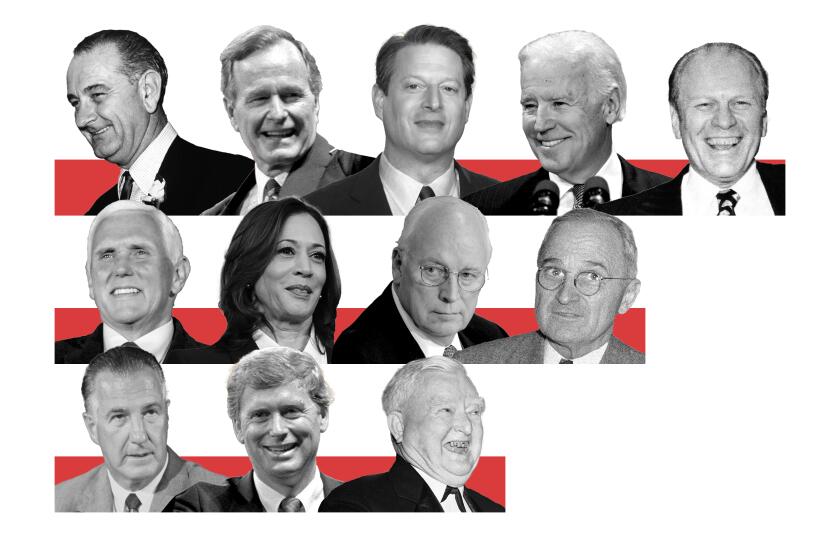Budget veto: Brown’s stark choice
That was quick.
Gov. Jerry Brown wasted no time vetoing two gimmick-laden budget bills passed Wednesday by Democrats in the Legislature. His veto message was harshly critical, saying the package “adds billions in new debt” and “contains legally questionable maneuvers, costly borrowing and unrealistic savings.” All of those things are true.
Yet Brown also blamed Republicans (who didn’t give a single vote to the budget package) rather than Democrats for the Legislature’s current predicament. He’s right on that point too, but that’s not the whole story. The Legislature isn’t likely to solve the state’s long-term fiscal problems unless GOP lawmakers concede more ground. But Democrats have to be willing to give more too.
By vetoing the bills, Brown kept his campaign promise not to support budgetary shell games. He also presented lawmakers with a stark choice: either agree to his proposal to ask voters to extend some temporary tax increases, or make deeper cuts in schools, universities and public safety. Those areas weren’t hit as hard as safety net programs were when the Legislature approved more than $10 billion in cuts in March, but with a budget gap of about $10 billion remaining, those programs are the biggest targets.
Lawmakers have already cut general-fund spending to 2005 levels, and cutting billions more would take an unacceptable toll on vital state services. And California doesn’t have to go down that road — Republicans have said they’re willing to let the public vote on Brown’s tax proposal, which would maintain a temporary hike in sales and vehicle taxes for five years instead of allowing them to drop on July 1.
But Republicans and Democrats haven’t been able to strike a deal, and each side blames the other for that failure. Republicans say that Brown and his Democratic colleagues won’t accept the limits on public pensions, spending and regulatory power that the GOP has proposed. Brown says he’ll support pension and regulatory reform and a spending cap, but that Republicans must agree to a “bridge tax” that would keep sales and vehicle taxes at their elevated rates until the public has a chance to vote on the issue in the fall.
Many elements of the GOP’s proposal have merit. Lawmakers should stop public employee pensions from being artificially inflated, and they should put pension funds on more sound financial footing. It also makes sense to have a more rigorous and results-oriented approach to crafting regulations, to stop the California Environmental Quality Act from being used to deter competition, and to prevent lawmakers from using spikes in revenue to launch unsustainable programs. Democrats should be willing to accept reforms along those lines, even though other aspects of the Republican plan go too far.
Republicans, meanwhile, should recognize that Brown is serious about forcing tough choices. Granted, it’s hard for Republicans to support even a temporary tax increase. And there’s no guarantee voters won’t reject Brown’s plan if they’re given the chance to do so. But the compromise Brown offers is far better than the deep cuts that he insists are the alternative. And his veto shows that he’s not kidding.
More to Read
A cure for the common opinion
Get thought-provoking perspectives with our weekly newsletter.
You may occasionally receive promotional content from the Los Angeles Times.










